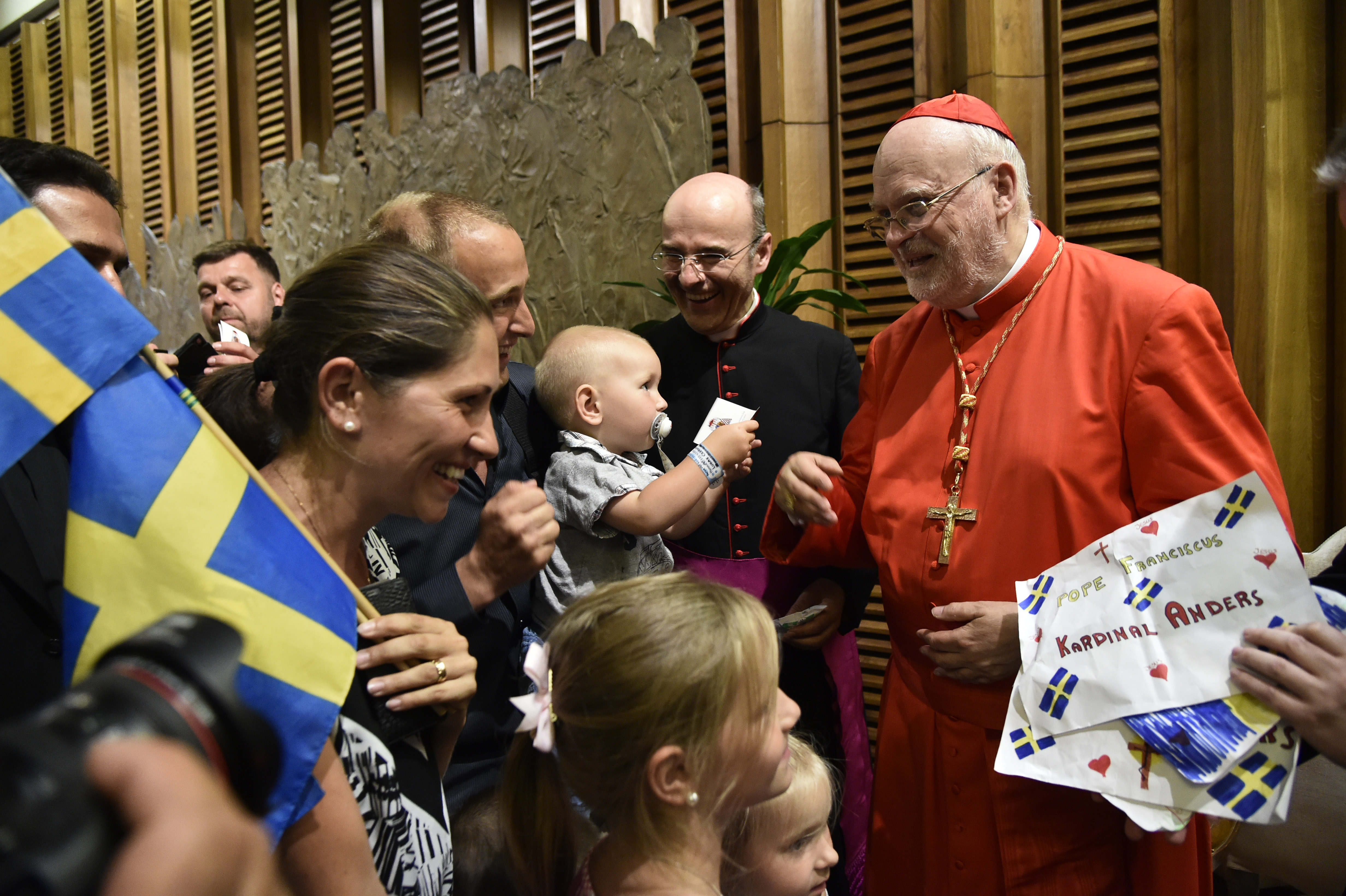Ad limina visit
In these Countries located on the geographic “margins” of Europe, Catholics amount to approximately 1% of the overall population in Finland (15 thousand faithful), Denmark (50 thousand) and Sweden (150 thousand), and to approximately 3% in Norway ( 150 thousand). The largest Catholic minority group is found in Iceland, 4% of the population, amounting to 13,500 faithful

From June 6 to 12 Scandinavian bishops were engaged in the ad limina visit that takes place every five years, for a dialogue with all the dicasteries, “especially with the Holy Father”, Mons. Czeslaw Kozon, bishop of Copenhagen, President of the Scandinavian Bishops’ Conference, told SIR, highlighting the differences in the recent meeting with the Pope compared to the past. “The style of the visits has changed” said the Danish bishops. “While in the past the President of the Bishops’ Conference delivered a speech to which the Pope replied with another speech, this time we immediately came together in a semicircle in which the Pope asked us to share our witness on the life of the Church in our respective Countries.”
 The meeting held on June 7 lasted almost one and half hours. The dialogue included a debate on “vocations to the priesthood and to consecrated life”, said Msgr. Kozon. “We have already adopted a common practice for vocational discernment in our Countries”, but “the Pope has asked us bishops to ensure spiritual accompaniment when needed. Vocations today are not born in Christian environments and the situation of young people varies considerably from one person to the next; every young person and every vocation has his/her own path that we need to understand also for our own benefit, to ensure effective spiritual accompaniment.” The Pope asked about the situation of youths in Nordic Countries:
The meeting held on June 7 lasted almost one and half hours. The dialogue included a debate on “vocations to the priesthood and to consecrated life”, said Msgr. Kozon. “We have already adopted a common practice for vocational discernment in our Countries”, but “the Pope has asked us bishops to ensure spiritual accompaniment when needed. Vocations today are not born in Christian environments and the situation of young people varies considerably from one person to the next; every young person and every vocation has his/her own path that we need to understand also for our own benefit, to ensure effective spiritual accompaniment.” The Pope asked about the situation of youths in Nordic Countries:
“Many young people leave the Church after Confirmation, those who remain, albeit in very small numbers, have a deep faith and a strong commitment.”
The young, committed faithful include a number of Lutherans who converted because they found greater clarity and more faithfulness to tradition inside the Catholic Church. In this respect, the Pope has again encouraged us “to accompany young people and to remember that every person has his/her own path of faith.”
Secularization is a phenomenon common to Sweden, Norway, Denmark, Finland and Iceland, representing, said the Danish bishop, “a common challenge faced by the Church in Western societies.” The most evident features include “decreased religious presence in the public arena”, religion “no longer viewed as a guide of humankind”, absent in political life “because some (many) political leaders consider religion a problem and/or a source of problems, and thus it must be kept at a distance”
In order to avoid religion from being viewed as a problem Denmark has adopted a law providing for mandatory courses in Danish values for “foreign preachers.”
This proposal “is not delivering good results”, said Msgr. Kozon. In fact, the regulation had been conceived for Muslim clerics. But they don’t participate because they are not interested in State recognition, while the Catholic Church seeks recognition also in legal terms, and thus her priests, most of whom are foreign citizens, are compelled to take these courses. Moreover, in Nordic Countries ecumenism is part and parcel of everyday life. However, while the general climate is positive, “the distances separating the Churches has grow wider”, “since all moral issues are dealt with from a liberal angle by Protestant Churches which expand the differences. But the dialogue continues, fostered by the visit of the Holy Father in Lund in October 2016”; the bishop pointed out.
 Referring to the meeting with the Pope, Cardinal Anders Arborelius, bishop of Stockholm, highlighted the great interest shown by Francis for the “life of the Church in Countries where Christians are a minority.” In fact, in these Countries “on the geographic margins” of Europe, Catholics represent approximately 1% of the overall population in Finland (15 thousand faithful), in Denmark (50thousand) and in Sweden (150thousand). They amount to approximately 3% in Norway (150thousand). The largest Catholic minority group is found in Iceland, 4% of the population, amounting to 13,500 faithful. The “climate of sharing” that characterised the meeting with the Holy Father tackled also the issue of migrants. “We are aware of growing difficulties experienced by the migrant and refugee population across many European countries. We”, representing the Catholic Church in the North of Europe “can testify to the fact
Referring to the meeting with the Pope, Cardinal Anders Arborelius, bishop of Stockholm, highlighted the great interest shown by Francis for the “life of the Church in Countries where Christians are a minority.” In fact, in these Countries “on the geographic margins” of Europe, Catholics represent approximately 1% of the overall population in Finland (15 thousand faithful), in Denmark (50thousand) and in Sweden (150thousand). They amount to approximately 3% in Norway (150thousand). The largest Catholic minority group is found in Iceland, 4% of the population, amounting to 13,500 faithful. The “climate of sharing” that characterised the meeting with the Holy Father tackled also the issue of migrants. “We are aware of growing difficulties experienced by the migrant and refugee population across many European countries. We”, representing the Catholic Church in the North of Europe “can testify to the fact
Thanks to immigrants the Catholic Church has managed to recover vitality and renewed impetus. It is a prophetic witness at a time when nationalistic movements are gaining increasing support.”
Also ecumenical dialogue “is increasingly important today.” The Pope’s message is of utmost relevance: “It’s very important for us Christians to continue the dialogue even when faced with difficulties, by doing everything possible.”